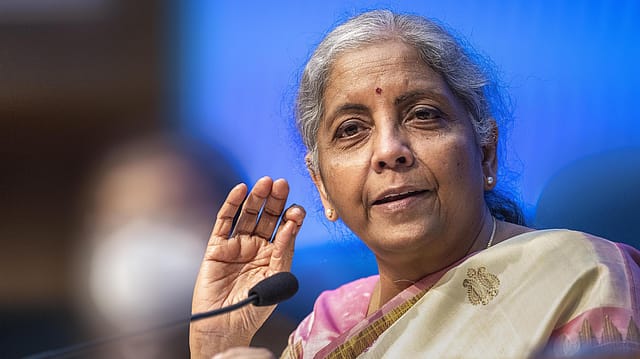GST 2.0: Centre issues toll-free number 1915 for complaints regarding price-cut benefits
ADVERTISEMENT

The Union Ministry of Finance has said consumers can raise complaints on toll free number 1915, if the new GST prices are not being passed on. The complaints can be raised through the national consumer helpline.
The ministry said in a series of frequently asked questions (FAQs) that if the benefits of the GST rate changes are not being received, queries/complaints can be raised. “Please call National Consumer Helpline (NCH) via toll-free number 1915 or WhatsApp at 8800001915. Complaints/queries can also be registered on the Integrated Grievance Redressal Mechanism (INGRAM) portal,” said the ministry in the FAQ.
New GST rates have been implemented nationwide, effective September 22. A price reduction has been implemented on approximately 400 products across various categories.
A range of items, including household goods, common-use products, four-wheelers, and two-wheelers, have become cheaper as the two-rate GST structure took effect on Monday. GST reform package was announced on September 3 by Finance Minister Nirmala Sitharaman, with a simplified two-slab structure (5% and 18%) and an additional 40% tax slab for sin goods. The GST on small cars and two-wheelers with an engine capacity of less than 350cc has been reduced from 28% to 18%.
January 2026
Netflix, which has been in India for a decade, has successfully struck a balance between high-class premium content and pricing that attracts a range of customers. Find out how the U.S. streaming giant evolved in India, plus an exclusive interview with CEO Ted Sarandos. Also read about the Best Investments for 2026, and how rising growth and easing inflation will come in handy for finance minister Nirmala Sitharaman as she prepares Budget 2026.
GST on common-use items, including hair oil, toilet soap bars, shampoos, toothbrushes, toothpaste, bicycles, tableware, kitchenware, and other household articles, has been reduced to 5% from either 12% or 18%. No tax will be applicable on Ultra-High Temperature (UHT) milk, prepackaged and labelled chena or paneer, or all Indian breads (such as chapati, roti, paratha, parotta, etc.). Food items such as packaged namkeens, bhujia, sauces, pasta, instant noodles, chocolates, coffee, preserved meat, cornflakes, butter, and ghee will now have a GST rate of 5%, compared with 12% or 18% previously.
It may be noted that the tax base and tax revenues have increased significantly since the launch of GST in 2017, according to a top official from the Central Board of Indirect Taxes and Customs (CBIC), who also stated that there is scope for further reforms in GST.
“Since the introduction of GST in 2017-18, we have seen more than 200% growth in the revenues and more than 100% growth in the number of taxpayers who have been registered in the GST,” said Shashank Priya, Special Secretary and Member (GST), CBIC, on Wednesday.
“Reform is an ongoing journey, and there is definitely room for improvement. Our appetite for reform is still there, and we will continue to work further on how to make this GST experience better for all the stakeholders,” Shashank Priya added.
Highlighting some key reforms in the GST, Shashank Priya said, “From 1st November 2025, applicants declaring input tax credit passthrough in a month not exceeding ₹2.5 lakh will be granted automated GST registration within three working days. And from October, a 90% refund for exports will be given up-front. The GST council has approved a broad framework to facilitate access of MSMEs to a larger market through e-commerce.”
